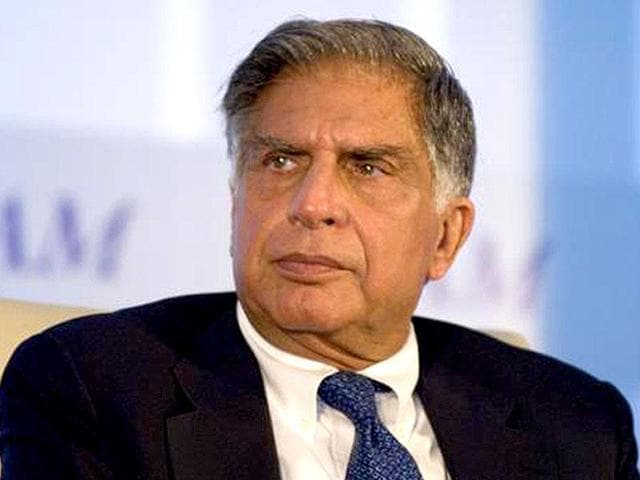How the tables have turned: The Ratan Tata of today needs no Niira Radia
Radia was in the eye of a storm for leaked tapes in which she was heard lobbying with a range of people to influence the government’s work.
On December 8, 2010 Ratan Tata wrote an open letter to businessman-turned Rajya Sabha member Rajeev Chandrasekhar. “Dear Rajeev,” began Tata, “I am currently overseas and have just seen a copy of the open letter you have addressed to me with copies to the entire media community.” Chandrasekhar’s letter had asked why the house of Tatas, with its impeccable reputation, had chosen to ally with Niira Radia. Radia was in the eye of a storm for leaked tapes in which she was heard lobbying with a range of people to influence the government’s work.

There were compelling reasons for the alliance with Radia and her firm, Vashnavi, said Tata’s letter. The Tata Group, it said, had been at the receiving end of media campaigns by “an unholy nexus between certain corporates and the media through selected journalists”. As the Tata Group did not have any such “captive connections”, it had no option but to seek an external agency focused at projecting its point of view and countering the “misinformation”.
You should read the letter. It is written from the heart and is painstaking in its detailing (google “Rata Tata open letter Rajeev Chandrasekhar”). It makes you feel for Ratan Tata; his sense of helplessness is palpable.
How the tables have turned. The other day, four top executives of the country’s biggest airlines were sitting in a hotel room around a large table laden with sandwiches and cookies. They were frowning, sighing, throwing their hands up in the air. They felt they were fighting a losing battle against two new airlines, Vistara and AirAsia India, both part-owned by the Tata group.
The bone of contention is the right to fly overseas. It is a juicy bone – an airline that flies overseas can use its fleet more by flying at night, it can buy cheaper fuel abroad, and it can earn precious foreign exchange. Both Vistara and AirAsia India have muscular foreign partners – Singapore Airlines and Air Asia – which have a vibrant overseas network of flights and hubs. The two new Indian carriers can soar by linking their domestic networks with the partners’ overseas ones.
Naturally, the Tata Group has been vocal in urging the government to scrap the rules that say an airline can fly overseas only after operating domestic routes for five years and growing its fleet to 20 aircraft. The so-called 5/20 rule, the group has pointed out time and again, does not exist anywhere else in the world and creates a field skewed in favour of the older airlines.
Right, say the older airlines, but all of them did the 5/20 thing despite not agreeing with it. IndiGo’s Rahul Bhatia admits that he went to the government many years ago to ask exactly what the Tata Group is asking now: to scrap 5/20. Denied, he went back and jumped through the hoops to earn his rights. Besides, just as the 5/20 does not exist anywhere else in the world, so also the route disbursal guidelines, which make Indian carriers fly routes they hate because the far-flung areas need air connectivity. If you scrap, says Bhatia, scrap both.
This debate will rage on, probably through draft policies, real policies, and maybe courts of law. But any judgement on the Tata Group’s ability to swing things will have to be a favourable one. This column would like to clarify, lest its words should be twisted, that there is no suggestion here of anything the Tata Group is not known to do. It has run a strong, transparent campaign, including getting a report done by the Centre for Asia Pacific Aviation, the briefing on which was mostly about the senselessness of the 5/20 rule.
Going by the draft civil aviation policy, the Tata Group could well get its wish. That and the fact that the older airlines say they are not getting much audience with the government. They say they got to make a written submission, and a date to go meet the civil aviation ministry when none of them could. After that, they were simply told the opportunity was not going to knock on their doors again. There is also the fact that the day the four top executives of the older airlines sat frowning around a table laden with food, there was nobody from Air India with them, although the government-owned national carrier will be hit badly if the 5/20 rule goes.
The others were driven into that room because Ratan Tata had accused them of lobbying to retain 5/20. His voice today is perhaps more powerful than anyone’s in the Indian industry. In this dogfight, he is setting the cat among the pigeons. He does not need Niira Radia.




